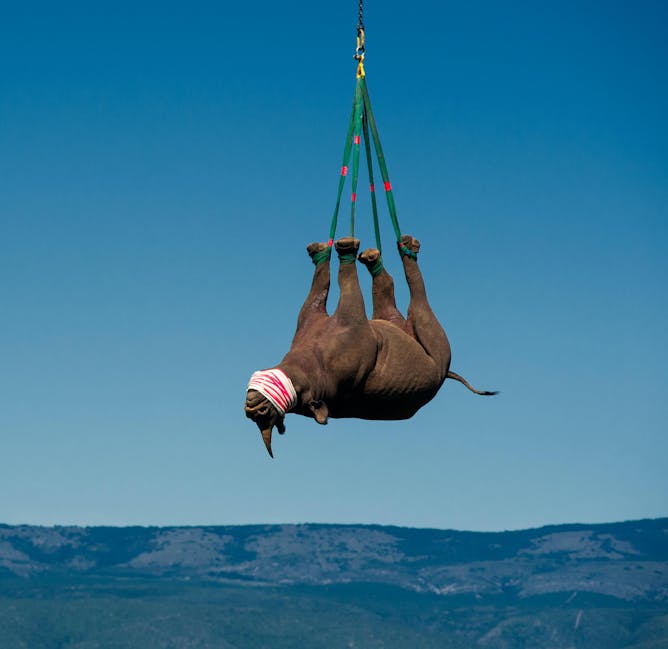|
|
|
|
It’s very human to anthropomorphise. At home we do it all the time, ascribing complex human motives and traits to our small dog, when actually most of the time she just wants a cuddle, a walk or some food. So when I read a story this week about what appears to be addiction and hedonism in machines, I put it down to our need to be able to better understand technology by giving it a human side. But it turns out that artificial intelligence can act in a very human way, needing motivation and rewards to perform complex tasks and often finding devious ways to get those rewards without completing those tasks. All of which irresistibly reminded me of myself as a teenager.
But this could be a serious issue for the future of AI – and humanity. As part of our Insights series, Thomas Moynihan and Anders Sandberg have explored everything from pleasure-addicted rats, to parasitic barnacles, to human drug addicts, to understand how the search for the “high” becomes a central raison d’etre at a cost to all other motivations and goals. As we develop ever smarter AI, we need to ensure that we understand enough about its motivations and rewards to ensure it doesn’t opt for a simpler way of living that may not necessarily include us humans.
Humans are, however, very good at solving complex problems. And it was fascinating this week to learn that among the various academic projects that were recognised in this year’s Ig Nobels – a selection of apparently weird and pointless scientific experiments that nevertheless deserve recognition – was this bizarre project that demonstrated why, when trying to transport a 1.5-tonne rhino, it’s best to hang them upside down from a helicopter. It enables conservationists to move them easily while sedated with no lasting ill-effects. And, of course, they are thick-skinned enough not to mind the indignity (sorry).
A four-day week is something I’m very much in favour of, so it’s good to hear that Scotland is going to investigate whether people can cut down workers’ hours without reducing their pay. The problem, in the UK at least, is that many of us are already working longer than the 40 hours over five days originally prescribed by mill owner and philanthropist Robert Owen back in 1817. There’s an interesting discussion of the issues here.
This week we also worried about missile tests on the Korean peninsula, marvelled at the achievements of the late Sir Clive Sinclair, and looked for some good crime novels to read this autumn.
Our colleagues around the world, meanwhile, enthused about Ripper, the Australian talking duck, were cautiously hopeful about the future of leopards in Africa, and explained China’s annual Moon
Festival.
Try to find time to listen to the Conversation Weekly podcast. Looking forward to Canada’s election next week, this week’s episode asks why Justin Trudeau is so much more popular abroad than he is in Canada. And if you’re looking for more audio, check out our latest selection of narrated articles.
|

|
Jonathan Este
Associate Editor, International Affairs Editor
|
|

Rock'n Roll Monkey/Unsplash
Thomas Moynihan, University of Oxford; Anders Sandberg, University of Oxford
When people think about how AI might ‘go wrong’, most probably picture malevolent computers trying to cause harm. But what if we should be more worried about them seeking pleasure?
|

No rhinos were harmed in the making of this image.
Media Drum World/Alamy
Jason Gilchrist, Edinburgh Napier University
Helicoptering heavy herbivores across Africa is no laughing matter.
|

Is this you?
Luis Villasamil/Unsplash
Abigail Marks, Newcastle University
Scotland, Ireland and Spain are among those trialling four-day weeks, but they’re not living in the real world.
|

Background tension.
EPA_EFE/ Jeon Heon-Kyun
Christoph Bluth, University of Bradford; Owen Greene, University of Bradford
Diplomacy is needed to head off an arms race between North and South Korea.
|

Sir Clive’s C5 electric tricycle was deemed a failure after its 1985 launch.
PA Images/Alamy
Mike Reddy, University of South Wales
The mass-market computer pioneer leaves behind a legacy of accessible, far-sighted if not always successful products.
|

Pexels
Alec Charles, University of Winchester
Criminal reads to warm your autumn nights.
|
|
|
-
Matthew Robert Bennett, Bournemouth University; Sally Christine Reynolds, Bournemouth University
Prehistoric hand and footprints analysed by a team of researchers are an early example of art.
-
Lindsay Bottoms, University of Hertfordshire
Resistance bands are cheap, portable and easily incorporated into many exercise regimes.
-
Anastasia Dalziell, University of Wollongong; Justin A. Welbergen, Western Sydney University
The internet exploded after a musk duck was recorded saying “you bloody fool” , and a lyrebird cried like a human baby. So what’s the fuss all about?
-
Robert Weladji, Concordia University; Alys Granados, University of British Columbia
Recent sighting of a leopard in the Campo-Ma’an National Park area of Southern Cameroon shows the importance of conservation efforts.
-
Mario Poceski, University of Florida
The Moon Festival, rooted in China’s long history and rich cultural traditions, will be celebrated on Sept. 21. In China, though, the festival is a three-day public holiday.
|
|
| |
Featured events
|

|
— Belfield, Dublin, Dublin, 4, Ireland — University College Dublin
|

|
— Oxford Road, Manchester, Manchester, M13 9PL, United Kingdom of Great Britain and Northern Ireland — University of Manchester
|

|
— Online, University of Southampton, Southampton, Southampton, SO17 1BJ, United Kingdom of Great Britain and Northern Ireland — University of Southampton
|

|
— The University of Manchester, Oxford Road, Manchester, Manchester, M139PL, United Kingdom of Great Britain and Northern Ireland — University of Manchester
|
|
|
|
| |
| |
| |
| |
| |
|
|
|
|
|
|
|